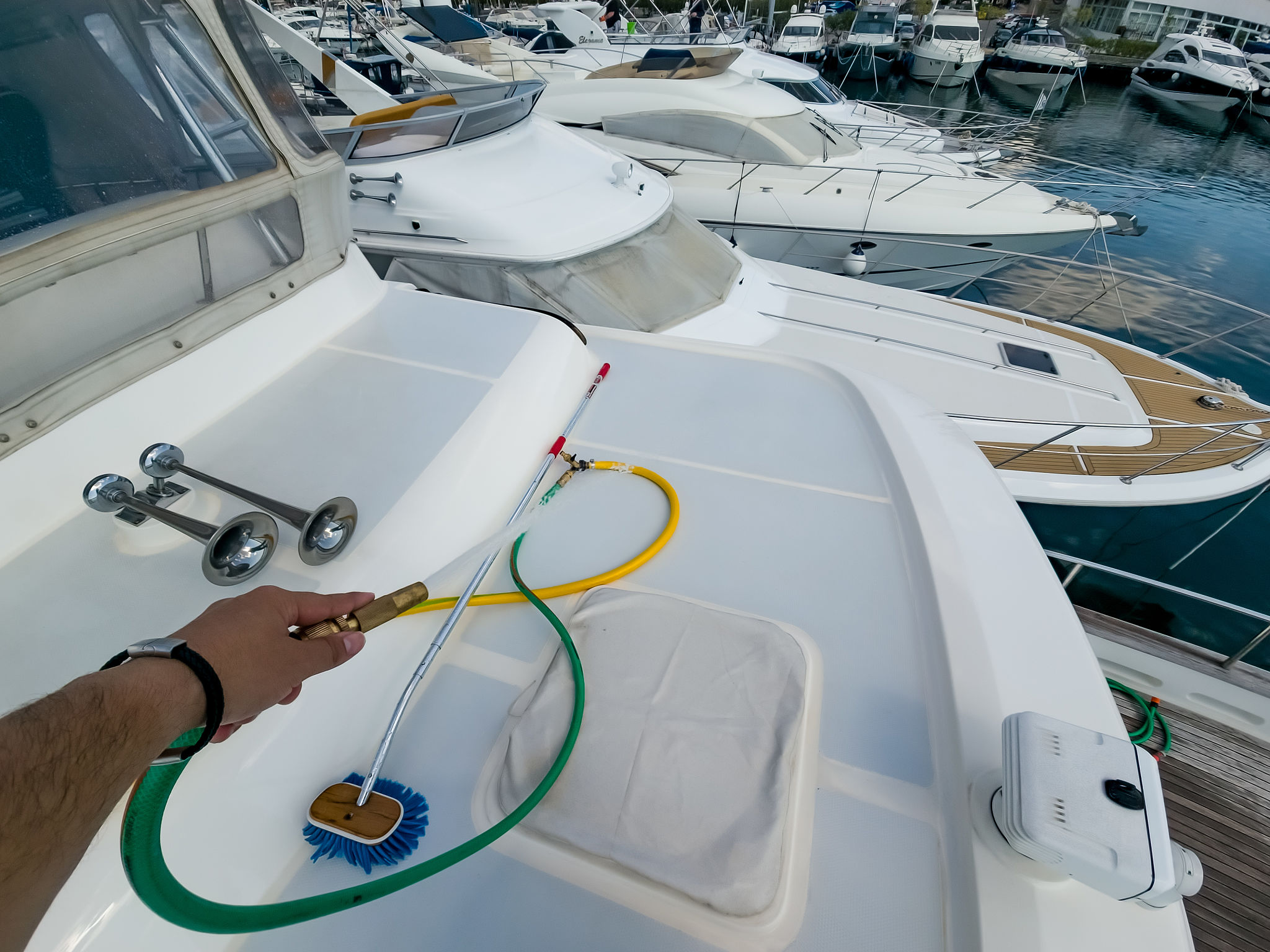How to Prepare Your Boat for the Florida Boating Season
Inspect the Hull and Propeller
As the Florida boating season approaches, it's crucial to ensure your boat is in top condition. Start by inspecting the hull and propeller for any signs of damage or wear. Look for cracks, blisters, or any other abnormalities. A thorough inspection helps prevent leaks and ensures your boat is seaworthy. If you find any issues, it's wise to address them immediately to avoid costly repairs later.
The propeller should also be in good condition. Check for bends, chips, or other damage that could affect performance. A damaged propeller can reduce fuel efficiency and impact overall handling. If necessary, consult a professional for repairs or replacements to ensure optimal performance on the water.

Check the Engine and Electrical Systems
A well-maintained engine is the heart of any boat. Before hitting the waters, conduct a comprehensive engine inspection. Check the oil levels and replace the oil filter if needed. Ensure that all hoses and belts are in good condition and replace any that show signs of wear. This step is crucial for preventing breakdowns while out on the ocean.
Next, inspect the boat's electrical systems. Test the battery to ensure it holds a charge and examine the connections for corrosion. Ensure all lights, including navigation and interior lights, are functioning properly. This is essential for safety, especially if you plan to be out during dusk or at night.

Update Safety Equipment
Safety should always be a top priority when boating. Review and update your safety equipment before the season begins. Make sure there are enough life jackets for all passengers and that they are in good condition. Check that you have a fully stocked first aid kit on board, as well as fire extinguishers that are up to date and in working order.
Don't forget to check the expiration dates on flares and replace them if necessary. A working VHF radio is essential for communication in case of an emergency. Verify that it’s working properly and consider carrying a backup radio or a mobile phone in a waterproof case.

Clean and Polish Your Boat
Appearance matters, and a clean boat not only looks better but also can help prevent long-term damage. Begin by thoroughly cleaning the exterior of your boat to remove any grime or salt deposits. Consider using a marine-specific cleaner that won't harm the environment or your boat's finish.
After cleaning, apply a good quality wax to protect the surface from UV rays and saltwater. Waxing can also make your boat more fuel-efficient by reducing drag in the water. Don't forget to clean the interior as well, ensuring that carpets and upholstery are free from mold and mildew.

Test Navigation and Communication Devices
Before setting sail, ensure that all navigation and communication devices are functioning correctly. Check your GPS system for software updates and verify that it’s accurately tracking your location. If you use charts, make sure they are current and cover the areas where you plan to travel.
Test your onboard communication systems, including radios and any mobile devices you plan to use. It's vital to have reliable communication, especially if you encounter unexpected weather conditions or need assistance while at sea.
Plan Your First Trip
With your boat in top shape, it's time to plan your first trip of the season. Choose a destination that suits your crew's experience level and interests. Whether it's a leisurely cruise along the coast or a fishing expedition, ensure that everyone on board is aware of the itinerary and safety protocols.
Remember to check the weather forecast before departure and plan for any potential changes. Having a backup plan or alternative route can help ensure a safe and enjoyable outing. With the right preparation, you can look forward to an exciting and memorable Florida boating season.
